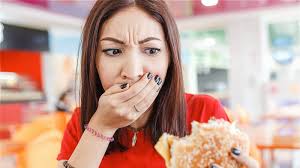
Some individuals engage in the compulsive act of eating hair, a condition known as trichophagia. This behavior is often associated with trichotillomania, a mental health disorder characterized by the irresistible urge to pull out one’s own hair. Trichophagia can lead to serious health complications due to the ingestion of hair.
1. Understanding Trichophagia and Trichotillomania
Trichotillomania is classified as a body-focused repetitive behavior (BFRB) and is considered a mental health condition. Individuals with this disorder may pull out hair from various parts of their body and, in some cases, consume the hair, leading to trichophagia. The exact cause of trichotillomania is not fully understood, but it is believed to involve a combination of genetic, environmental, and psychological factors.
2. health Risks Associated with Eating Hair
Ingesting hair can result in the formation of hairballs, known as trichobezoars, in the stomach or intestines. These masses can cause gastrointestinal issues such as nausea, vomiting, abdominal pain, and in severe cases, intestinal obstruction. If left untreated, trichobezoars can lead to life-threatening complications and may require surgical intervention to remove.
3. Psychological and Emotional Factors
The act of eating hair is often a coping mechanism for underlying psychological issues such as stress, anxiety, or trauma. Individuals may engage in this behavior as a way to self-soothe or manage emotional distress. Addressing the root causes through therapy and support is crucial for effective treatment.
4. Treatment and Support
Treatment for trichophagia typically involves a combination of behavioral therapy, such as cognitive-behavioral therapy (CBT), and support groups. CBT can help individuals identify and change the thoughts and behaviors associated with hair-pulling and eating. In some cases, medication may be prescribed to address underlying mental health conditions.
5. Importance of Seeking Help
If you or someone you know is struggling with trichophagia, it is important to seek professional help. Early intervention can prevent serious health complications and improve the individual's quality of life. Mental health professionals can provide guidance and support tailored to the individual's needs.
In summary, trichophagia is a serious condition that involves the compulsive eating of hair and can lead to significant health issues. Understanding the psychological factors and seeking appropriate treatment are essential steps toward recovery.




 click and follow Indiaherald WhatsApp channel
click and follow Indiaherald WhatsApp channel